With all the talk about anarchism and voluntarism on Steemit lately, I figured I couldn't be the only one who didn't get what the fuss is all about. So I did some research, partly for my own comprehension, and partly to explain to YOU what it's all about. As anarchism is a fairly understood concept, I started from there.
Introduction
Anarchism is a political belief which opposes compulsory government rule. It advocates for a society that exists without a coercive state because the government does not add any value to the life of people hence is unnecessary. The reason for rejecting states is because they are not morally upright, and they should not have the right to command an individual. Although, anarchism does not advocate for immediate removal of states, it gives room for the transition from one form of government to another. Its aim is helping the oppressed and marginalized people in the society (Berkman, 2003).
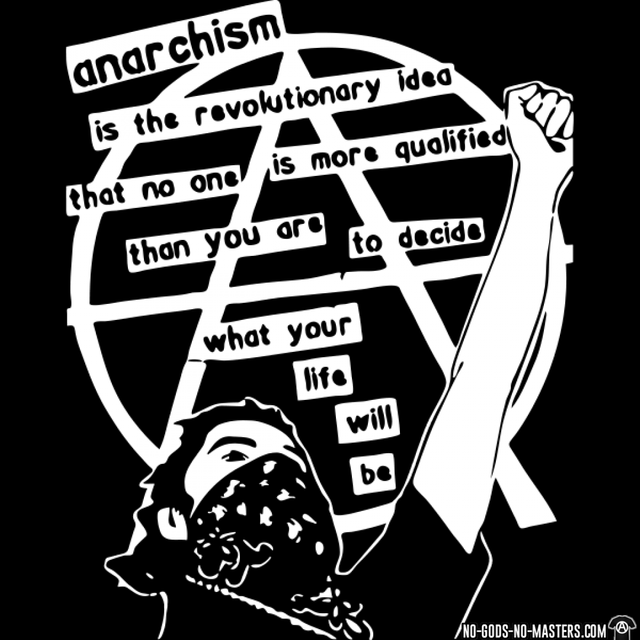
Voluntarism is a belief that the relations among human beings have to be by mutual consent. It advocates for the abolishment of force for people to succeed. Modern voluntarism is a branch of anarchism that is moderate in implementing its policies. Regulation of the society is left at individual wiliness to do the right. It fights for some adjustment of the anarchism philosophy such as the abolishment of communism. Voluntarism became common to the pro-capitalist who claimed to be liberal and were advocating for change in the land ownership and wages. The purpose of this post is to outline the differences between anarchism and modern voluntarism (The Isocratic Network, 2013).
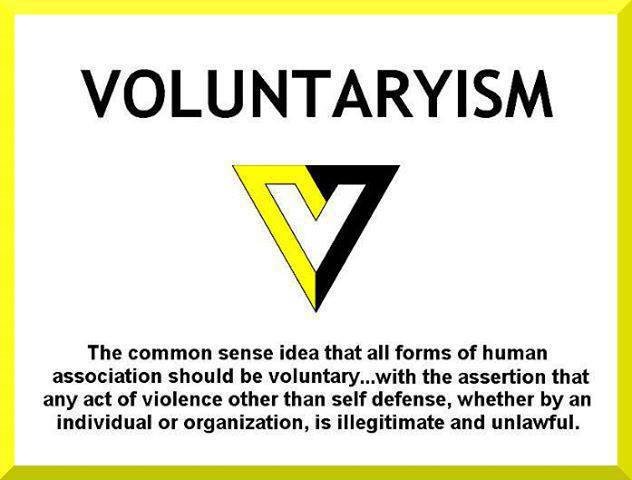
Differences
Firstly, though modern voluntarism shares ideas with anarchism, there are some things the two groups do not agree on when it comes to property ownership hence the reason for the upcoming of modern voluntarism from the anarchism. According to Joshua Engel, (2011) anarchism believes that all human beings are created equally and should enjoy the resources on the land without any of them being disadvantaged. That means they use communism form of spreading wealth which results to all property belonging to the state and developed to the benefit of the people.

On the other hand, according The Isocratic Network, (2013), modern voluntarism is moderate when it comes to the distribution of wealth. Individuals should be given room to bargain on ownership of property which means ones hard work will determine how much a person will get. In the anarchism, people get the allocation of wealth because of the virtue of being natives of that place. The current society is much interested in individual input towards something rather than society input so as it can be easier to control production and increase quality. Anarchy subscription to communism is making people lose interest with it. As a result of that, modern voluntarism is gaining ground because people are more willing to have personal ownership of properties than having it as a society. Critics say most government that uses anarchism as a form of governing end up to be dictatorial.
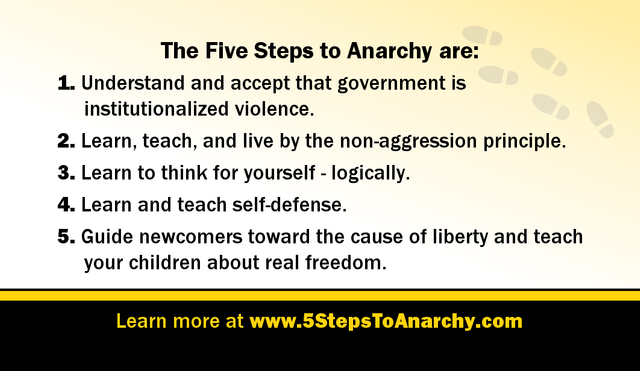
Secondly, pure anarchism is radical in implementing its laws. Those supporting it claim all that is being implemented is for the good of people, and there should be no compromise to its implementation. Failures of pure anarchism to create room for negotiation to a matter of human interest sometimes make it an unfavorable way of bringing society to gather. On the other hand, it nature of being radical has made it prone to misuse, for example; some government has resume power through coup deter and when they come to power they use one of the anarchism policy called socialism to deprive people their wealth(Horn, n.d). Modern voluntarism has erupted from anarchism to moderate some of its laws. It is moderate and gives room for negotiation on matters affecting the society. While pure anarchism remains stiff to old policies.Modern voluntarism is dynamic and willing to voluntary welcomes all members of the community to dialogue. It is campaigning for a change of various policies from the anarchy form of leadership such as the right of property ownership (Herbert, 1885).
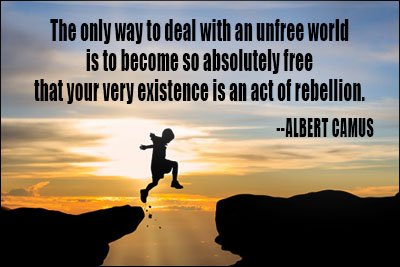
Lastly, voluntarism opts for people to do things out of their will and hence when it comes to regulating their rules, behaviors, cultures, economy and many other activities, itconsiders the will of the individual. Voluntarism involves reconciliation as one way of settling disputes. Those people who subscribe to voluntarism believe the best way to implement the law is through voluntarism because it leaves a person with choices of what to do without a control of someone else. There is no government to dictate and impose rules. Morals are used to guide people in their daily actions. People are given the freedom to carry out activities which will do good to them and has no effects on others, for example, one is allowed to purchase a weapon if he or she feels it is the best weapon for his or her security without a third party interfering (Herbert, 1885).
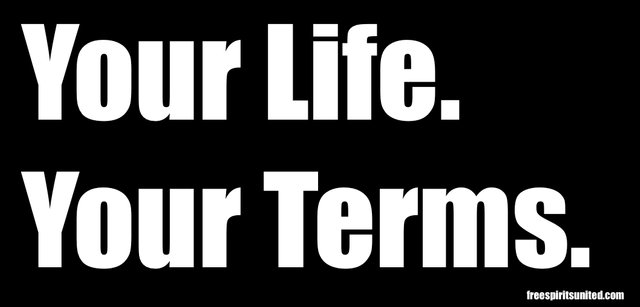
Anarchism works to remove all burden and restriction from people. The Anarchism way of doing things is less lenient or friendly compared to the voluntarism way of doing thing although they are almost the same and apply the same mechanism in their daily activities regulations. It holds one has to be responsible for his or her action, while voluntarism call for one to volunteer to do the right things so as not to harm the other person, anarchism tends to make one suffer for his or her action. Hardly do it concentrates on preventing bad action to happen, instead it push for application of rules against the action of a person. Anarchism is prone to being tough when enforcing law and order, especially when doing it for the interest of the whole society(Horn, n.d).
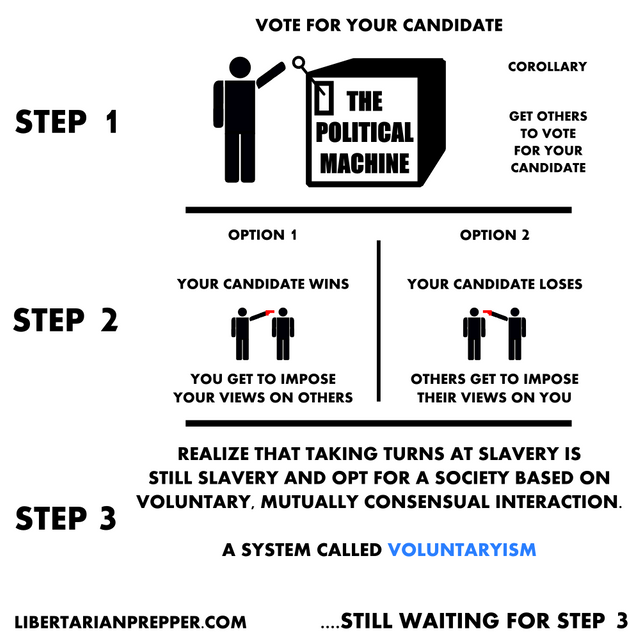
Conclusion
Both voluntarism and anarchism relate in many aspects because they subscribe to one major belief of a state without government where people will not be subjected to direct laws from the government. The growth of ideas and political knowledge of the society has brought a revolutionary group which calls for changes in the anarchism philosophy. The rebellion is trying to find a solution to some complication in the anarchism theory such as ownership of property and implementation of law. There is likelihood of more drift in the anarchism because most of its policies are not applicable in the current society, for example, it will be hard for a state whose government does not collect the tax to existing. Such a nation will not be in a position to handle its national and international policies. There is still need to amend some of the policies in the voluntary group, for instance; it is still hard for a voluntarism society to exist because people will hardly control themselves. In general, both philosophies have been developed to try to give ideas of an ideal society. The philosophies may never apply to any society, but people and the government can work towards the realization of a fair and just government.
References:
Auberon Herbert (1885).The Principles of Voluntarism and Free Life. Retrieved from
http://www.panarchy.org/herbert/voluntaryism.html
Berkman, A. (2003). What is anarchism? (Vol. 1). AK Press.
Joshua Engel. (2011).What are the Arguments for Anarchy? Retrieved from
https://www.quora.com/What-are-the-arguments-for-anarchy
Kevin S. Van Horn. (n.d). Rule-of-law Anarchism: A Strategy for Destroying the State's
Legitimacy. Retrieved from http://freeamerica.ws/BBB1/rule-of-law-anarchism.html
The Isocratic Network. (2013) Voluntaryism: Exploitation Pretending to Be Anarchism.
Retrieved from http://isocracy.org/content/voluntaryism-exploitation-pretending-be-anarchism
Thoughts or comments welcome!
Thanks for reading!
That's not really accurate. The reason it's called "voluntaryism" isn't because everyone is expected to voluntarily do the right thing. It's called that because the standard of the right thing is allowing people to do things voluntarily.
If someone forces another person to sign a contract against their will, or kidnaps them, or extorts money from them, that doesn't mean that everyone will just overlook it, or that they won't punish the offender - quite the opposite. The point is that, this standard of behaviour should apply to everyone - including those who call themselves "government".
Downvoting a post can decrease pending rewards and make it less visible. Common reasons:
Submit
ok! this comment is follow worthy for me!
Downvoting a post can decrease pending rewards and make it less visible. Common reasons:
Submit
Thanks!
Downvoting a post can decrease pending rewards and make it less visible. Common reasons:
Submit
Very interesting post, @r4fken! But I find your distinction between Anarchism vs Modern Voluntarism a little bit troublesome. If MV is Anarchism, why should we contrast it with this term? Isn't it better to make a distinction between Libertarian Anarchism (anarcho-capitalism) and Communo-Anarchism (anarcho-syndicalism)?
Downvoting a post can decrease pending rewards and make it less visible. Common reasons:
Submit
The main reason voluntaryism or anarcho-capitalism has popped up in place of pure anarchy, or anarcho-syndicalism, is because anarcho-syndicalism strictly prohibits property ownership, and is therefore incompatible with the non-aggression principle. It also requires a centralized coercive authority to be implemented, making it a self-detonating way to organize a society in a decentralized way.
Downvoting a post can decrease pending rewards and make it less visible. Common reasons:
Submit
Hi! I am a content-detection robot. This post is to help manual curators; I have NOT flagged you.
Here is similar content:
https://theanarchistlibrary.org/library/uri-gordon-anarchism-and-political-theory-contemporary-problems
Downvoting a post can decrease pending rewards and make it less visible. Common reasons:
Submit
he only used refrences to state his point cheetah
Downvoting a post can decrease pending rewards and make it less visible. Common reasons:
Submit
Great post. Following.
Not persuaded by this:
Didn't know anarchy had a State :)
Downvoting a post can decrease pending rewards and make it less visible. Common reasons:
Submit
Who rules the meaning of "anarchism?"
To me, an important part of anarchism (some call it voluntaryism) is it's simplicity. It is so simple we don't need "authorities" to interpret the various flavors. Some people will need guidance in following or discovering the logical consequences, but the idea is simple: No Rulers, No Aggression and Self Ownership. These follow from the right to life. There can't be rulers without "legalized" aggression. There can't be self ownership if there are rulers. Without self ownership there can't be a right to pursue life.
Anyone agreeing so far should be able to see that ownership of property, the fruits of one's labor, is an extension of self ownership and the right to life. It should also be clear that central ownership of property or communism would require force, rullers and aggression.
I see no reason to discuss various colors or flavors of anarchism. If someone wants to live a primitive life with or without others they can call themselves whatever they want and still be anarchists if they follow the above principles.
Downvoting a post can decrease pending rewards and make it less visible. Common reasons:
Submit